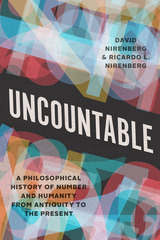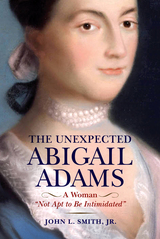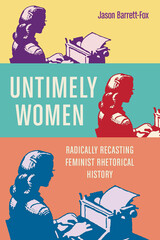
Untimely Women recovers the work of three early-twentieth-century working women, none of whom history has understood as feminists or rhetors: cinema icon and memoirist, Mae West; silent film screenwriter and novelist, Anita Loos; and journalist and mega-publisher, Marcet Haldeman-Julius. While contemporary scholarship tends to highlight and recover women who most resemble academic feminists in their uses of propositional rhetoric, Jason Barrett-Fox uses what he terms a medio-materialist historiography to emphasize the different kinds of political and ontological gender-power that emerged from the inscriptional strategies these women employed to navigate and critique male gatekeepers––from movie stars to directors to editors to abusive husbands.
In recasting the work of West, Loos, and Haldeman-Julius in this way, Barrett-Fox reveals the material and ontological ramifications of their forms of invention, particularly their ability to tell trauma in ways that reach beyond their time to raise the consciousness of audiences unavailable to them in their lifetimes. Untimely Women thus accomplishes important historical and rhetorical work that not only brings together feminist historiography, rhetorical materialism, and posthumanism but also redefines what counts as feminist rhetoric.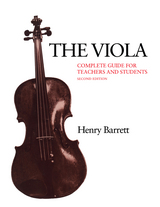
The second edition is extensively expanded in its graded lists of studies and solos
This book, in its encyclopedic catalog of viola literature in print, and (perhaps most important) in its treatment of the musical and pedagogical aspects of teaching the viola. A work already unique has been augmented in all its major aspects. The excerpts that follow are from reviews of the out-of-print first edition.

The research in this volume explores the hypothesis that poverty is self-reinforcing because the equilibrium behaviors of the poor perpetuate low standards of living. Contributions explore the dynamic, complex processes by which households accumulate assets and increase their productivity and earnings potential, as well as the conditions under which some individuals, groups, and economies struggle to escape poverty. Investigating the full range of phenomena that combine to generate poverty traps—gleaned from behavioral, health, and resource economics as well as the sociology, psychology, and environmental literatures—chapters in this volume also present new evidence that highlights both the insights and the limits of a poverty trap lens.
The framework introduced in this volume provides a robust platform for studying well-being dynamics in developing economies.
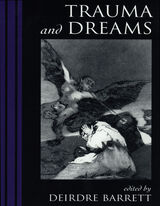
According to the poet Elias Canetti, “All the things one has forgotten / scream for help in dreams.” To the ancient Egyptians they were prophecies, and in world folklore they have often marked visitations from the dead. For Freud they were expressions of “wish fulfillment,” and for Jung, symbolic representations of mythical archetypes. Although there is still much disagreement about the significance and function of dreams, they seem to serve as a barometer of current mind and body states.
In this volume, Deirdre Barrett brings together the study of dreams and the psychology of trauma. She has called on a distinguished group of psychiatrists, psychologists, and social workers—among them Rosalind Cartwright, Robert J. Lifton, and Oliver Sacks—to consider how trauma shapes dreaming and what the dreaming mind might reveal about trauma. The book focuses on catastrophic events, such as combat, political torture, natural disasters, and rape. The lasting effects of childhood trauma, such as sexual abuse or severe burns, on personality formation, the nature of memories of early trauma, and the development of defenses related to amnesia and dissociation are all considered. The book also takes up trauma and adult dreams, including Vietnam veterans and Post-Traumatic Stress Disorder, Holocaust survivors and perpetrators, rape victims, and firestorm survivors. Finally, this volume concludes with a look at the potential “traumas of normal life,” such as divorce, bereavement, and life-threatening illness, and the role of dreams in working through normal grief and loss.
Taken together, these diverse perspectives illuminate the universal and the particular effects of traumatic experience. For physicians and clinicians, determining the etiology of nightmares offers valuable diagnostic and therapeutic insights for individual treatment. This book provides a way of juxtaposing the research in the separate fields of trauma and dreams, and learning from their discoveries.

Barrett makes the case that Americans on both sides of the struggle believed that poetry had an important role to play in defining national identity. She considers how poets created a platform from which they could speak both to their own families and local communities and to the nations of the Confederacy, the Union, and the United States. She argues that the Civil War changed the way American poets addressed their audiences and that Civil War poetry changed the way Americans understood their relationship to the nation.
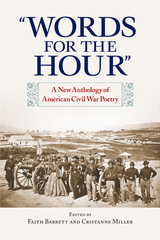
The volume is divided into three parts, each offering a different perspective on the poetry generated by the war. Part I samples the extraordinary range of poems written immediately preceding and during the war and published in popular periodicals, providing a kind of poetic newspaper account as one might have read it then—from the early days of optimistically heralded victory on both sides, through the mounting casualties and brutal deaths of the long middle years, to the war's conclusion and President Lincoln's assassination. Viewing the struggle from many different vantage points gives the reader access to the ways that people from various backgrounds experienced the trajectory of the war. Civilians and soldiers, free blacks and proponents of slavery, women and men from Massachusetts and Virginia and from recently admitted states and barely developed territories, writers with their eyes on the national political stage and those focused on personal domestic issues: these are the multiple voices of America responding to the war.
Part II includes substantial selections of poems by writers who published extensively in response to the conflict, providing more complex and comprehensive perceptions of the war. These poets include not just well-known figures such as Walt Whitman, Herman Melville, and John Greenleaf Whittier, but also African American poets George Moses Horton and Frances Ellen Watkins Harper and Southern poets Henry Timrod and Sarah Piatt.
Part III offers poems by two poets who did not publish during their lifetimes, but had strong imaginative responses to the conflict, thus giving a sense of the long reach of the war as a defining national experience. One of these two poets (Emily Dickinson) is now renowned while the other (Obadiah Ethelbert Baker) is first published in this volume.
"Words for the Hour" is indeed "new" among anthologies of Civil War poetry not only in its wide range of poems by popular, anonymous, and now canonical poets but also in its informational apparatus. A historical timeline listing major battles and events of the war begins the volume, and historical photographs or lithographs introduce each section of poems. The book also includes a substantial introduction, a glossary of important names and terminology relevant to understanding the poems, and biographical sketches for all the poets whose work is included.
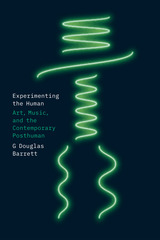
In Experimenting the Human, G Douglas Barrett argues that experimental music speaks to the contemporary posthuman, a condition in which science and technology decenter human agency amid the uneven temporality of postwar global capitalism. Time moves forward for some during this period, while it seems to stand still or even move backward for others. Some say we’re already posthuman, while others endure the extended consequences of never having been considered fully human in the first place. Experimental music reflects on this state, Barrett contends, through its interdisciplinary involvements in postwar science, technology, and art movements.
Rather than pursuing the human's beyond, experimental music addresses the social and technological conditions that support such a pursuit. Barrett locates this tendency of experimentalism throughout its historical entanglements with cybernetics, and in his intimate analysis of Alvin Lucier’s neurofeedback music, Pamela Z’s BodySynth performances, Nam June Paik’s musical robotics, Pauline Oliveros’s experiments with radio astronomy, and work by Laetitia Sonami, Yasunao Tone, and Jerry Hunt. Through a unique meeting of music studies, media theory, and art history, Experimenting the Human provides fresh insights into what it means to be human.

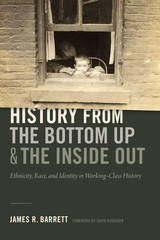

A self-educated wage earner raised in the slums of a large industrial city, William Z. Foster became a brilliant union organizer who helped build the American Federation of Labor and, later, radical Trade Union Educational League. Embracing socialism, syndicalism, and communism in turn, Foster rose through the ranks of the American Communist Party to stand at the forefront of labor politics throughout the 1920s. Yet by the time he died in 1961, in a Moscow hospital far from the meat-packing plants and steel mills where he had built his reputation, Foster's political marginalism stood as a symbol for the isolation of American labor radicalism in the postwar era.
Integrating both the indigenous and the international factors that determined the fate of American communism, William Z. Foster and the Tragedy of American Radicalism provides a new understanding of the basis for radicalism among twentieth-century American workers.


"An elegant emulation and continuation of Pride and Prejudice. . . . Jointly composed by two admirers of Jane Austen, the book often achieves crisp replication of her style. . . . Presumption shows how sequel-writing can, like parody, be a sharp exercise in literary appreciation."—Peter Kemp, Times Literary Supplement
Julia Barrett is a pseudonym for Julia Braun Kessler and Gabrielle Donnelly.
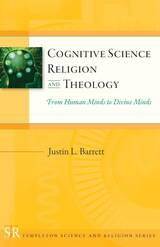
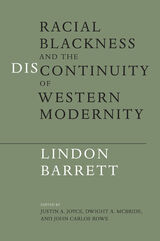
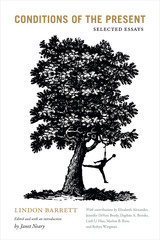
Contributors. Elizabeth Alexander, Jennifer DeVere Brody, Daphne A. Brooks, Linh U. Hua, Janet Neary, Marlon B. Ross, Robyn Wiegman
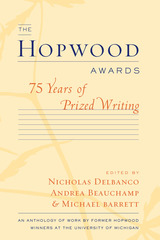
-Arthur Miller
The Hopwood Awards claim a gallery of prizewinners who rose to become the Who's Who of writers of the last three generations: Max Apple, John Ciardi, Mary Gaitskill, Robert Hayden, Laura Kasischke, Jane Kenyon, Arthur Miller, Howard Moss, Frank O'Hara, Marge Piercy, Ronald Wallace, and Nancy Willard, among many others.
Since they first began in 1931, funded by a bequest from the will of playwright Avery Hopwood, University of Michigan Class of 1905, the Hopwood Awards have grown in profile and stature to become one of the most sought after and celebrated writing prizes for students.
The Hopwood Awards: 75 Years of Prized Writing collects-for the first time in one volume-poetry and prose by writers who won Hopwood Awards when they were students at the University of Michigan and who went on to achieve fame as writers.
Nicholas Delbanco is Professor of English and Director of the Hopwood Program at the University of Michigan. He is author or editor of numerous books, including Anywhere Out of the World: Essays on Travel, Writing, Death;The Sincerest Form; and The Writing Life: The Hopwood Lectures.
Andrea Beauchamp is Program Associate at the Hopwood Program, and Michael Barrett is Associate Editor at the Hopwood Program, University of Michigan.

Published to commemorate the Deering Library’s 75th anniversary, this book explores the Deering and McCormick families, who funded the project; the building’s distinctive Collegiate Gothic architecture; its lore as a campus institution; and its role in the evolution of Northwestern University Library into one of the country’s most prominent research libraries. Richly illustrated, it is both an authoritative account of a landmark library and a rich keepsake for Northwestern alumni.
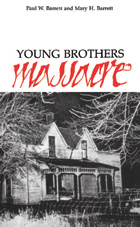
On January 2, 1932, near Springfield, Missouri, ten poorly armed law enforcement officers set out to arrest two local farm boys for auto theft. A few minutes later, six of the officers lay dead and three were wounded, setting a record that stands to this day for the greatest number of police officers killed in one incident in the history of the United States. This is the story of how it happened and of the unlikely people whose lives were forever changed.
The two killers, Jennings and Harry Young, were from a peaceful, tiny community named Brookline in central Greene County, Missouri. The "massacre" itself took place at the quiet orderly farm home of the J. D. Young family. Paul and Mary Barrett trace the personalities of those involved in the incident, describe the events of the fateful day, and examine the aftermath of the killings, detailing what was called "the greatest man hunt in the history of Texas," which culminated in the brothers' deaths in Houston.

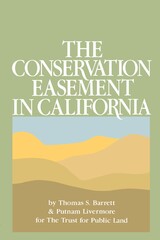


The Sugar Hacienda of the Marqueses Del Valle was first published in 1970. Minnesota Archive Editions uses digital technology to make long-unavailable books once again accessible, and are published unaltered from the original University of Minnesota Press editions.
This is a detailed history of a Mexican sugar plantation, the first such account to be published in English. The subject of the study is the Cortes plantation, which was established on the outskirts of Cuernavaca in about 1535 by Hernan Cortes, the conqueror of New Spain and the first Marques del Valle de Oaxaca. The plantation remained the property of his heirs and descendents until the twentieth century when, like most other sugar plantations in Morelos, it ceased production.
Professor Barrett bases his account largely on the records of the Cortes plantation, a remarkably continuous series of documents for an agricultural enterprise. He deals with the records in three principal ways: as representative of the history of the sugar industry in Mexico; as representative of the history, external relationships, structure, and management of Spanish colonial plantations; and as a chapter in the history of sugar technology. He presents a detailed picture of the entire operation of the plantation. He explains how water and land rights were acquired, the latter little by little, until a goodsized plantation was formed. He describes methods of irrigation, planting cycles, weeding and harvesting schedules, and, with the aid of charts and inventories, reconstructs the plan of the mill, describes its equipment, and traces the processing of the cane into sugar. Finally, he discusses the livestock and labor needed to run the plantation and mill—oxen and mules to plow, mules to carry the sugar to market, unskilled fieldworkers, both slave and hired, and highly skilled sugarmasters. The appendixes contain much useful supplementary material. The book is illustrated with drawings, maps, and reproductions of manuscripts.
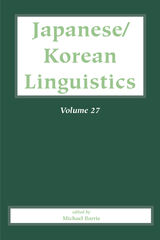
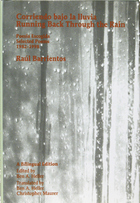
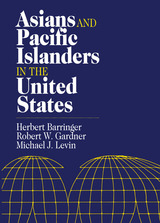
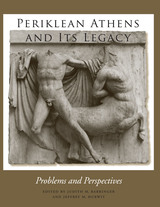
The late fifth century BC was the golden age of ancient Athens. Under the leadership of the renowned soldier-statesman Perikles, Athenians began rebuilding the Akropolis, where they created the still awe-inspiring Parthenon. Athenians also reached a zenith of artistic achievement in sculpture, vase painting, and architecture, which provided continuing inspiration for many succeeding generations.
The specially commissioned essays in this volume offer a fresh, innovative panorama of the art, architecture, history, culture, and influence of Periklean Athens. Written by leading experts in the field, the articles cover a wide range of topics, including:
- An evaluation of Perikles' military leadership during the early stages of the Peloponnesian War.
- Iconographical and iconological studies of vase paintings, wall paintings, and sculpture.
- Explorations of the Parthenon and other monuments of the Athenian Akropolis.
- The legacy of Periklean Athens and its influence upon later art.
- Assessments of the modern reception of the Akropolis.
As a whole, this collection of essays proves that even a well-explored field such as Periklean Athens can yield new treasures when mined by perceptive and seasoned investigators.

Contributors. Anna Arabindan-Kesson, Tim Barringer, Anthony Bogues, David Boxer, Patrick Bryan, Steeve O. Buckridge, Julian Cresser, John M. Cross, Petrina Dacres, Belinda Edmondson, Nadia Ellis, Gillian Forrester, Catherine Hall, Gad Heuman, Rivke Jaffe, O'Neil Lawrence, Erica Moiah James, Jan Marsh, Wayne Modest, Daniel T. Neely, Mark Nesbitt, Diana Paton, Elizabeth Pigou-Dennis, Veerle Poupeye, Jennifer Raab, James Robertson, Shani Roper, Faith Smith, Nicole Smythe-Johnson, Dianne M. Stewart, Krista A. Thompson

Virginia’s Apple is a collection of fourteen literary memoirs that explore pivotal episodes across poet and writer Judith Barrington’s life. Artfully crafted, each one stands alone yet they are linked—characters reappear and, taken together, they create a larger narrative.
The content is wide-ranging: the early days of the Second Wave of feminism—the exhilaration, the wildness, the love affairs, the surprises, and the self-invention, as well as the confusion and conflicts of those heady times; navigating a sometimes precarious existence as an out lesbian long before it was commonplace; leaving England and becoming an American citizen; finding a life partner; and growing old with an inherited disability. The author’s friendship with the distinguished poet Adrienne Rich is the subject of one story. In another, there’s an appearance by the notorious murderer, Lord Lucan, whose wife was a chance acquaintance.
These stories are laced with humor and joy, while pulsing below the surface is the slow unfolding of delayed grief over her parents’ drowning when she was nineteen, revealing how such a loss can shape a life.
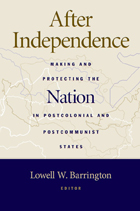
"Where do nationalists go once they get what they want? We know rather little about how nationalist movements transform themselves into the governments of new states, or how they can become opponents of new regimes that, in their view, have not taken the self-determination drive far enough. This stellar collection contributes not only to comparative theorizing on nationalist movements, but also deepens our understanding of the contentious politics of nationalism's ultimate product--new countries."
--Charles King, Chair of the Faculty and Ion Ratiu Associate Professor, Georgetown University School of Foreign Service
"This well-integrated volume analyzes two important variants of nationalism-postcolonial and postcommunist-in a sober, lucid way and will benefit students and scholars alike."
--Zvi Gitelman, University of Michigan
Lowell W. Barrington is Associate Professor of Political Science, Marquette University.
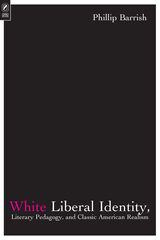

Combining powerful insights from theory with close observation of data, Robert Barro’s new book goes a long way toward the establishment of an empirically based macroeconomic theory.
Barro first presents a positive theory of government economic policymaking by using applied game theory to model strategic interactions between policymakers and the private sector. He applies this framework to questions of rules, discretion, and reputation in monetary policy. He then takes a close look at whether monetary disturbances have a strong effect on business fluctuations, concluding that the effect is neither as strong nor as pervasive as many economists have believed. He consequently turns his attention from monetary policy to fiscal policy. The originator of the modern theory of Ricardian equivalence, which says that taxes and budget deficits are logically equivalent, Barro summarizes the current debate and argues that the Ricardian theorem is the correct starting point for the analysis of intertemporal government finance. Finally, stating his belief that macroeconomists have probably spent too much time thinking about deficits—which relate to how government spending is financed—and not enough about the effects of government expenditures themselves, he examines evidence of the macroeconomic effects of government spending in the United States and Great Britain.

The new classical approach to macroeconomics, which assumes that people gather and use economic information efficiently, has been the most important theoretical advance since the Keynesian revolution of the 1930s. This book surveys the major contributions of the “second generation” of proponents of the new classical approach, emphasizing real business cycle theories and applying them to a variety of phenomena.
The chapters include expositions of growth theory, real models of business fluctuations, the informational role of prices, consumption, fiscal policy, rules versus discretion in monetary policy, time consistency and policy, and monetary models. Although the chapters are aimed at advanced undergraduate- and graduate-level students, they will also be of interest to researchers who are looking for a compact and original exposition of the new classical macroeconomics.
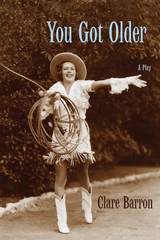
Winner of a 2015 Obie Award for Playwriting
Mae has returned home to help her father while he undergoes treatment for cancer. But she needs a little help herself. She’s just lost her boyfriend and her job. (It turns out there are consequences to dating your boss . . .) And she’s desperately craving intimacy of any sort. Mae escapes into the the arms of a chain-smoking, imaginary Cowboy who turns her on and ties her up. And she escapes into chatter with her siblings as they attempt to distract and entertain themselves in a hospital waiting room. But ultimately, it’s her deep love for her father that teaches Mae to remain optimistic and ambitious in the face of suffering and that gets her back on track.
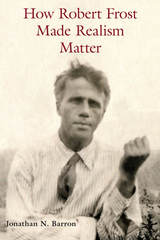
Robert Frost stood at the intersection of nineteenth-century romanticism and twentieth-century modernism and made both his own. Frost adapted the genteel values and techniques of nineteenth-century poetry, but Barron argues that it was his commitment to realism that gave him popular as well as scholarly appeal and created his enduring legacy. This highly researched consideration of Frost investigates early innovative poetry that was published in popular magazines from 1894 to 1915 and reveals a voice of dissent that anticipated “The New Poetry” – a voice that would come to dominate American poetry as few others have.

Selected Essays and Dialogues is a collection of translations of Italian essayist Gianni Celati’s theoretical and musing work from the late 1960s to the present. Its topics range from environmental perception and archaeological conceptions of historical knowledge to street theater, writing, photography, cinema, and translation. The book provides a framework of key literary, theoretical, and artistic movements of the past fifty years, as well as a guide for English-language readers to place Celati’s work in historical, cultural, and biographical contexts.
Celati’s fondness for the unexpected ordinary tempts readers to wander and become lost in the webs of his daring thoughts. Indeed, a genial adventurousness can be found within all of his writings collected here, driven by an affectionate and light-hearted engagement with the surrounding world. This collection offers a taste of his adventures of the mind and body, led by a lithe sensitivity not restricted to the so-called high arts or letters, but also very much engaged with the everyday lives, places, and tales we all constantly share.
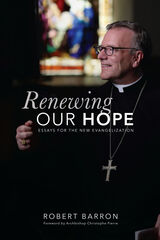
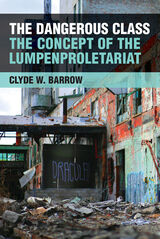
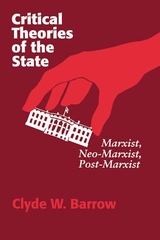
Critical Theories of the State is a clear and accessible survey of radical perspectives on the modern state. By focusing on Marxist theory and its variations, particularly as applied to advanced industrial societies and contemporary welfare states, Clyde W. Barrow provides a more extensive and thorough treatment than is available in any other work.
Barrow divides the methodological assumptions and key hypotheses of Marxist, Neo-Marxist, and Post-Marxist theories into five distinct approaches: instrumentalist, structuralist, derivationist, systems-analytic, and organizational realist. He categorizes the many theorists discussed in the book, including such thinkers as Elmer Altvater, G. William Domhoff, Fred Block, Claus Offe, and Theda Skocpol according to their concepts of the state’s relationship to capital and their methodological approach to the state. Based on this survey, Barrow elaborates a compelling typology of radical state theories that identifies with remarkable clarity crucial points of overlap and divergence among the various theories.
Scholars conducting research within the rubric of state theory, political development, and policy history will find Critical Theories of the State an immensely valuable review of the literature. Moreover, Barrow’s work will make an excellent textbook for undergraduate and graduate courses in political science and sociology, and can also be used by those teaching theory courses in international relations, history, and political economy.

The rapid growth of the American environmental movement in recent decades obscures the fact that long before the first Earth Day and the passage of the Endangered Species Act, naturalists and concerned citizens recognized—and worried about—the problem of human-caused extinction.
As Mark V. Barrow reveals in Nature’s Ghosts, the threat of species loss has haunted Americans since the early days of the republic. From Thomas Jefferson’s day—when the fossil remains of such fantastic lost animals as the mastodon and the woolly mammoth were first reconstructed—through the pioneering conservation efforts of early naturalists like John James Audubon and John Muir, Barrow shows how Americans came to understand that it was not only possible for entire species to die out, but that humans themselves could be responsible for their extinction. With the destruction of the passenger pigeon and the precipitous decline of the bison, professional scientists and wildlife enthusiasts alike began to understand that even very common species were not safe from the juggernaut of modern, industrial society. That realization spawned public education and legislative campaigns that laid the foundation for the modern environmental movement and the preservation of such iconic creatures as the bald eagle, the California condor, and the whooping crane.
A sweeping, beautifully illustrated historical narrative that unites the fascinating stories of endangered animals and the dedicated individuals who have studied and struggled to protect them, Nature’s Ghosts offers an unprecedented view of what we’ve lost—and a stark reminder of the hard work of preservation still ahead.

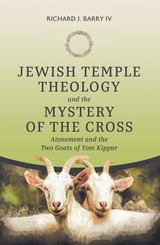
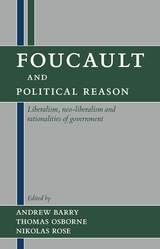
These twelve essays provide a critical introduction to Foucault's work on politics, exploring its relevance to past and current thinking about liberal and neo-liberal forms of government. Moving away from the great texts of liberal political philosophy, this book looks closely at the technical means with which the ideals of liberal political rationalities have been put into practice in such areas as schools, welfare, and the insurance industry.
This fresh approach to one of the seminal thinkers of the twentieth century is essential reading for anyone interested in social and cultural theory, sociology, and politics.

Despite the hard-earned successes of body positive, antiracist, and disability rights activists calling for diverse representation, the fashion industry has been slow to evolve. In Fashion Education: The Systemic Revolution, fashion educators share their experiences navigating, resisting, and transforming the narrow beauty and body ideals that have defined pedagogy within the discipline. The volume examines their challenges and successes, as well as practical strategies for countering narrow fashion education curricula. Educators share ways to radically redesign courses and decenter white supremacy, fatphobia, ableism, transphobia, and misogyny. Together, the chapters illuminate the critical role of fashion education in systematically eliminating body oppression and building a more inclusive profession.

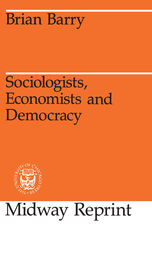
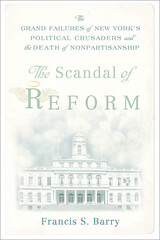
The Scandal of Reform pulls the curtain back on New York's reformers past and present, revealing the bonds they have always shared with the bosses they disdain, the policy failures they still refuse to recognize, and the transition they have made from nonpartisan outsiders to ideological insiders.
Francis S. Barry examines the evolution of political reform from the frontlines of New York City's recent reform wars. He offers an insider's account and analysis of the controversial 2003 referendum debate on nonpartisan elections, and he challenges reformersùand members of both partiesùto reconsider their faith in reforms that are no longer serving the public interest.
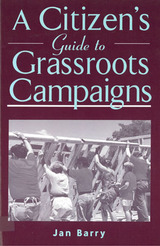
Civic movements are essential to Americans’ freedom and quality of life. Active citizens have led the way from the American Revolution to urban renewal. But fiery emotions and good intentions without skillful organization can lead to frustrated civic involvement. How can individual concerns be transformed into effective community action?
Jan Barry provides a pragmatic, common-sense handbook to civic action. Using case studies from his home state of New Jersey, Barry has crafted what he calls a “guidebook for creative improvement on the American dream.” He dissects civic actions such as environmental campaigns, mutual-help groups, neighborhood improvement projects, and a grassroots peace mission to Russia. Looking for patterns to explain successes and failures, Barry includes his own experiences as a Vietnam veteran peace activist to inspire and coach fledgling activists. The result is a wealth of practical, non-partisan information on membership recruitment, organizational skills, public speaking, lobbying, publicity, conflict resolution, and more. Rising above any particular political, social, or religious beliefs, Barry shows would-be activists how to confront one enduring truth —“Democracy is a lot harder to do than it is to talk about or fight over.”
Standing Our Ground: Women, Environmental Justice, and the Fight to End Mountaintop Removal examines women’s efforts to end mountaintop removal coal mining in West Virginia. Mountaintop removal coal mining, which involves demolishing the tops of hills and mountains to provide access to coal seams, is one of the most significant environmental threats in Appalachia, where it is most commonly practiced.
The Appalachian women featured in Barry’s book have firsthand experience with the negative impacts of Big Coal in West Virginia. Through their work in organizations such as the Coal River Mountain Watch and the Ohio Valley Environmental Coalition, they fight to save their mountain communities by promoting the development of alternative energy resources. Barry’s engaging and original work reveals how women’s tireless organizing efforts have made mountaintop removal a global political and environmental issue and laid the groundwork for a robust environmental justice movement in central Appalachia.

From the moment the first stewardesses took flight in 1930, flight attendants became glamorous icons of femininity. For decades, airlines hired only young, attractive, unmarried white women. They marketed passenger service aloft as an essentially feminine exercise in exuding charm, looking fabulous, and providing comfort. The actual work that flight attendants did—ensuring passenger safety, assuaging fears, serving food and drinks, all while conforming to airlines’ strict rules about appearance—was supposed to appear effortless; the better that stewardesses performed by airline standards, the more hidden were their skills and labor. Yet today flight attendants are acknowledged safety experts; they have their own unions. Gone are the no-marriage rules, the mandates to retire by thirty-two. In Femininity in Flight, Kathleen M. Barry tells the history of flight attendants, tracing the evolution of their glamorized image as ideal women and their activism as trade unionists and feminists.
Barry argues that largely because their glamour obscured their labor, flight attendants unionized in the late 1940s and 1950s to demand recognition and respect as workers and self-styled professionals. In the 1960s and 1970s, flight attendants were one of the first groups to take advantage of new laws prohibiting sex discrimination. Their challenges to airlines’ restrictive employment policies and exploitive marketing practices (involving skimpy uniforms and provocative slogans such as “fly me”) made them high-profile critics of the cultural mystification and economic devaluing of “women’s work.” Barry combines attention to the political economy and technology of the airline industry with perceptive readings of popular culture, newspapers, industry publications, and first-person accounts. In so doing, she provides a potent mix of social and cultural history and a major contribution to the history of women’s work and working women’s activism.
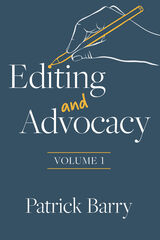
This book— which is based on a popular course taught at the University of Chicago Law School, the University of Michigan Law School, and the UCLA School of Law— is designed to help you become one of those editors. You’ll learn how to edit with empathy. You’ll learn how to edit with statistics. You’ll learn, in short, a wide range of compositional skills you can use to elevate your advocacy and better champion the causes you care about the most.
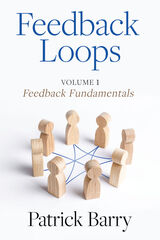
Learning how to give and receive feedback is fundamental to the development of every student and professional. Yet few of us are ever taught anything like “feedback skills.”
This book, which is the first in the Feedback Loops series, is designed to change that. Here is what students who have taken the University of Michigan Law School course on which the series is based have said about it:
-
“One of the most memorable and useful classes I have taken in law school!”
-
“Excellent, full stop.”
-
“This class was always a fun highlight of my week.”
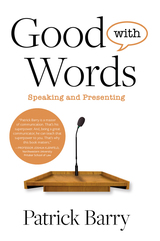
This book is designed to help you find out. Based on an award-winning course and workshop series at the University of Michigan taken by students training to enter a wide range of fields—law, business, medicine, social work, public policy, design, engineering, and many more—it removes the guesswork from figuring out how to communicate clearly and compellingly. All of us have ideas that are worth sharing. Why not learn how to convey yours in a way that people will appreciate, enjoy, and remember?
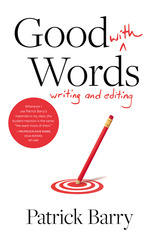

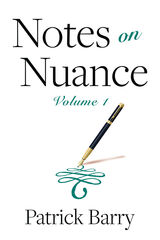
To succeed in law, business, education, government, health care, and many other fields, it is becoming increasingly important to distinguish yourself as a savvy communicator. Social media has only accelerated the ways in which we all must learn to use our words to connect, compete, and create. There are features of the English language, however, that many of us haven’t taken full advantage of yet. Notes on Nuance is designed to help change that.
Drawing on a diverse collection of authors—from novelists to physicists, from ancient Greek historians to modern-day CEOs—it reveals the hidden mechanics that skilled writers use to add style and sophistication to their sentences and slogans. It’s the perfect resource for people who are looking to do more with their written words.
This book includes materials from a popular course called “Good with Words: Writing and Editing” that Professor Patrick Barry created at both the University of Michigan Law School and the University of Chicago Law School. An online version of that course is now available through the educational platform Coursera.
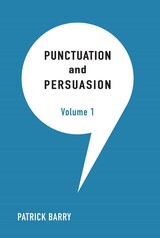
With a little knowledge and a lot of practice, you can do more than just sound more professional when you skillfully use commas, semicolons, and other forms of punctuation. You can, importantly, become more persuasive.
That’s what students who have taken Professor Patrick Barry’s classes at the University of Michigan Law School, the University of Chicago Law School, and the UCLA School of Law have learned, as have the over 100,000 people who have enrolled in his online course “Good with Words: Writing and Editing” on the educational platforms Coursera and FutureLearn.
Now, thanks to this book, you can undergo that same rhetorical transformation. Punctuation doesn’t have to be a pain point. When properly mastered, it can be a powerful tool for all kinds of advocates.
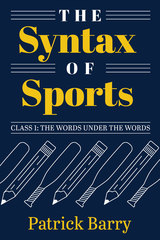
The beginning of a multi-volume series, this initial book recreates the first day of class as it was taught to undergraduates at the University of Michigan. The examples are compelling. The dialogue is fast moving. The stories are ones you’ll want to return to and retell over and over again. There is a reason the actual students who took The Syntax of Sports said the following things about it:
“Every class I learned something new that I know I’ll actually use in my writing for years to come. Couldn’t be happier that I took a chance on Syntax of Sports.”
“Prof. Barry has structured the course so that it’s almost impossible not to learn something valuable to take with you to future classes and future career possibilities.”
“I have learned a ton of techniques for being a better writer in this class. I have also learned many life lessons that will undoubtedly guide how I act in the future.”
“I absolutely loved this course because the teacher was so awesome. I enjoyed sitting through class listening to Professor Barry and falling in love with his brain.”

What can we learn from baseball great Ted Williams about how to improve our writing? What can we learn we from the iconic ESPN show SportsCenter about how to manage information? And are you sure you really know what the word “peruse” means?
Explore these and other questions in the second volume of The Syntax of Sports, a series designed to recreate a popular course at the University of Michigan. Here are a few things students have said about the experience of taking it.
-
“Patrick Barry is the best teacher I have ever had. I have never learned so much in a class. I hated English my whole life until I took this course.”
-
“I feel like this is and always will be the most valuable class I've ever taken here.”
-
“I genuinely wanted to show up to this class due to the amount I knew I would learn.”
-
“I'm going to severely SEVERELY miss this course.”
-
“Every student should try to take one of Prof. Barry’s classes if he or she wants to become a better writer.”
-
“My writing is now 113x better.”
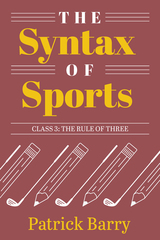
It’s not an accident that hall of fame coaches, Pulitzer Prize-winning writers, and the marketing teams at the most innovative companies in the world often rely on a certain three-part structure when trying to communicate their ideas. This third volume of The Syntax of Sports series explores the mechanics of that structure and shows how it can add a compelling mix of clarity and sophistication to your writing.
Like in the previous volumes, the materials come from a popular course at the University of Michigan. Here are comments from students who have taken it:
“The quality of this course was fantastic!”
“Professor Barry really knows how to keep students engaged.”
“Professor Barry is very passionate about teaching, and his enthusiasm made me want to write and learn.”
“This course not only helps you become a better writer but also sheds light on how you might become a better person.”
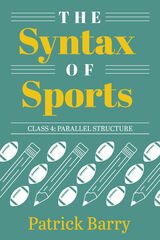
“Once you find the right structure, perhaps it will be easier to find the right content.” That’s one of the key insights from this fourth book in the series The Syntax of Sports. Others include:
- The importance of being “radically inclusive”
- The power of defining something by what it is not
- The creative elegance of the word “as”
So join Professor Patrick Barry as he continues to share lessons from the popular writing course at the University of Michigan on which The Syntax of Sports is based. You’ll learn about language. You’ll learn about advocacy. And you’ll get to explore some illuminating connections between everything from the speeches of Winston Churchill, to the paintings of Leonardo da Vinci, to—perhaps most surprisingly—the face of NFL legend (and former University of Michigan quarterback) Tom Brady.

- "Fantastic"
- "Phenomenal"
- "Very engaging and informative:
- "Incredibly useful
- "Full of practical lessons for both my career and life generally"
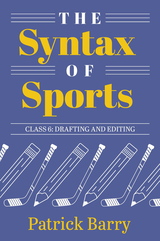
How do you start a piece of writing? How do you edit one? And what can be done to combat those pesky—and paralyzing—feelings of perfectionism that often derail our most important sentences and paragraphs?
This sixth volume of the Syntax of Sports series creatively uses the language of baseball, football, tennis, and many other sports to explore these questions. Based on a popular course at the University of Michigan, it captures the energy, originality, and discipline - crossing insights that make its author, Professor Patrick Barry, such a sought-after teacher and presenter.
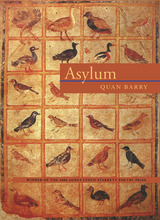
2002 finalist in poetry, Society of Midland Authors
Quan Barry’s stunning debut collection has been compared to Sylvia Plath’s Ariel for the startling complexity of craft and the original sophisticated vision behind it. In these poems beauty is just as likely to be discovered on a radioactive atoll as in the existential questions raised by The Matrix.
Asylum is a work concerned with giving voice to the displaced—both real and fictional. In "some refrains Sam would have played had he been asked" the piano player from Casablanca is fleshed out in ways the film didn’t allow. Steven Seagal, Yukio Mishima, Tituba of the Salem Witch Trials, and eighteenth-century black poet Phillis Wheatley also populate these poems.
Barry engages with the world—the Tuskegee syphilis experiments, the legacy of the Vietnam war—but also tackles the broad meditative question of the individual’s existence in relation to a higher truth, whether examining rituals or questioning, "Where is it written that we should want to be saved?" Ultimately, <I>Asylum</I> finds a haven by not looking away.

In Auction, her first poetry collection in eight years, the poet, novelist, and playwright Quan Barry travels the globe in her signature quest into the existential nature of experience. These poems explore the inner landscapes of both the human and animal realms, revealing them to be points along the same spectrum. At the heart of the book lies an extended study of toxic storytelling as an element of warcraft, but Barry also contemplates the death of a Buddhist master, the plight of migrants both at home and abroad, the ethics of travel and consumption, and the larger question of how and why we construct a self in order to navigate the world.
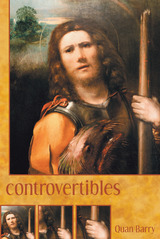
Samantha Smith, Richard Nixon, the Shroud of Turin, Igor Stravinsky, the largo from Handel's Xerxes, the resurrection of Lazarus, and the groundbreaking 1984 Apple Computer Super Bowl commercial are among the many disparate people and objects Barry uses to explore the multifaceted nature of existence.
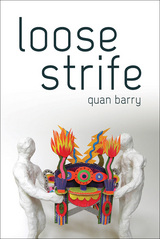

Winner of the 2010 Donald Hall Prize in Poetry
In her third poetry collection, Quan Barry explores the universal image of war as evidenced in Afghanistan and Iraq as well as Vietnam, the country of her birth. In the long poem “meditations” Barry examines her own guilt in initially supporting the invasion of Iraq. Throughout the manuscript she investigates war and its aftermath by negotiating between geographically disparate landscapes—from the genocide in the Congo—to a series of pros poem “snapshots” of modern day Vietnam. Despite the gravity of war, Barry also turns her signature lyricism to other topics such as the beauty of Peru or the paintings of Ana Fernandez.
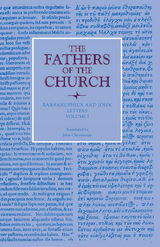
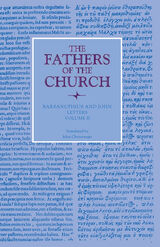
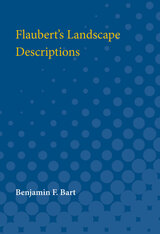
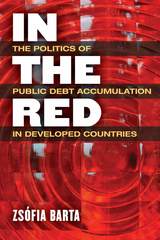
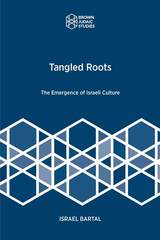
A new interpretation of the roots of Israeli culture
In Tangled Roots: The Emergence of Israeli Culture, Israel Bartal traces the history of modern Hebrew culture prior to the emergence of political Zionism. Bartal examines how traditional and modernist ideals and Western and non-European Jewish cultures merged in an unprecedented encounter between an ancient land (Israel) and a multigenerational people (the Jews). Premodern Jewish traditionalists, Palestinian locals, foreign imperial forces, and Jewish intellectuals, writers, journalists, and party functionaries each affected the Israeli culture that emerged. As this new Hebrew culture was taking shape, the memory of the recent European past played a highly influential role in shaping the image of the New Hebrew, that mythological hero who was meant to supplant the East European exilic Jew.
Features
- A critical revision of most contemporary politicized histories of Jewish nationalism
- An examination of the history of modern Hebrew culture prior to political Zionism
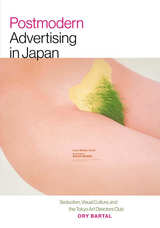
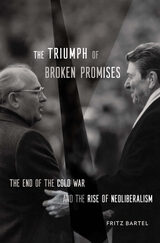
A powerful case that the economic shocks of the 1970s hastened both the end of the Cold War and the rise of neoliberalism by forcing governments to impose austerity on their own people.
Why did the Cold War come to a peaceful end? And why did neoliberal economics sweep across the world in the late twentieth century? In this pathbreaking study, Fritz Bartel argues that the answer to these questions is one and the same. The Cold War began as a competition between capitalist and communist governments to expand their social contracts as they raced to deliver their people a better life. But the economic shocks of the 1970s made promises of better living untenable on both sides of the Iron Curtain. Energy and financial markets placed immense pressure on governments to discipline their social contracts. Rather than make promises, political leaders were forced to break them.
In a sweeping narrative, The Triumph of Broken Promises tells the story of how the pressure to break promises spurred the end of the Cold War. In the West, neoliberalism provided Western leaders like Ronald Reagan and Margaret Thatcher with the political and ideological tools to shut down industries, impose austerity, and favor the interests of capital over labor. But in Eastern Europe, revolutionaries like Lech Walesa in Poland resisted any attempt at imposing market discipline. Mikhail Gorbachev tried in vain to reform the Soviet system, but the necessary changes ultimately presented too great a challenge.
Faced with imposing economic discipline antithetical to communist ideals, Soviet-style governments found their legitimacy irreparably damaged. But in the West, politicians could promote austerity as an antidote to the excesses of ideological opponents, setting the stage for the rise of the neoliberal global economy.


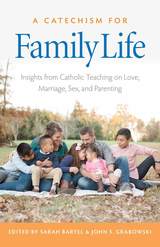
To address this need, we gathered pertinent questions facing men, women, and pastoral workers in marriage and family life. We then found passages relevant to these questions by researching Church documents on marriage and family from the past one hundred years. These include papal encyclicals, apostolic exhortations, and addresses, Vatican II documents, and the Catechism of the Catholic Church.
Mainstream media coverage of Church events and Church teaching leads many to misunderstand Catholic positions on marriage and family life. While the Catholic Church has developed a rich, detailed, and positive teaching on marriage, family, and sexuality, many Catholics do not have access to this teaching, buried as it is in lengthy Church documents which many find intimidating. Finding the relevant teaching to address specific questions is not always a simple task, either. This book’s main contribution is to present Church teaching relevant to marriage and family in one volume clearly organized by topic and question.
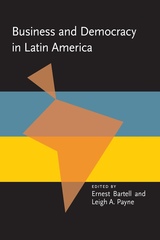
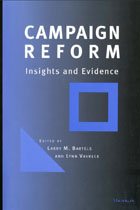
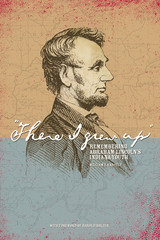

Joe Wilson (1938-2015), a native of rural East Tennessee, was a civil rights activist, self-educated scholar, founder/administrator of nationally important roots music enterprises, and was legendary for his colorful writing and opinions. Lucky Joe’s Namesake, a companion to Roots Music in America: Collected Writings of Joe Wilson (also published by the University of Tennessee Press), brings us Wilson’s life and observations, mostly in his own words.
From humble mountain beginnings, Wilson’s career progressed through Nashville, Tennessee; Birmingham, Alabama; and New York City, before settling him for twenty-eight years near the seats of power in Washington, D.C. as the executive director of the National Council for the Traditional Arts. In that role, he developed a national model for folk festival presentations, stalked the halls of federal representatives seeking support for traditional artists, and filled concert venues throughout the world with audiences eager to experience the work of master folk musicians. A powerful advocate on behalf of agrarian values, social justice, artistic authenticity, and cultural democracy, Joe wrote in an engaging, humorous, and memorable style.
This eclectic anthology is filled with Joe Wilson’s brilliant published writing for magazines, books, and newspapers as well as privately circulated unpublished works, including an extended autobiographical essay. Readers are sure to benefit from Wilson’s lessons and artful ruminations culled from a lifetime of devotion to music and cultural and social activism.

Joe Wilson served for twenty-eight years as executive director of the National Folk Festival and National Council for Traditional Arts. Throughout his impressive career, Wilson wrote extensively and colorfully about many facets of vernacular music in North America, including works on major folk instruments, as well as on characteristic musical styles, especially old-time, bluegrass, modern country, blues, cowboy, a cappella gospel, and others. This volume, a companion to Lucky Joe’s Namesake: The Extraordinary Life and Observations of Joe Wilson, compiles Wilson’s best writings on musical topics, including some previously unpublished works.
With wry humor, Wilson covers the origins of roots music in eighteenth-century America and its subsequent dispersion through races, classes, ethnic groups, and newly settled regions. Wilson knew, worked with, and wrote about many iconic artists of the twentieth century, including Willie Nelson, Doc Watson, Clarence Ashley, the Stanley Brothers, Kenny Baker, Cephas & Wiggins, John Jackson, and members of the Hill Billies—the band whose name came to signify an entire genre of the earliest recorded roots music. This carefully curated volume is comprised of works previously scattered in liner notes, small-circulation magazines, tour booklets, and unpublished manuscripts, all collected here and organized by theme.
The writings of this legendary, internationally recognized figure will be indispensable to roots music fans and will delight readers and students interested in the traditional arts and dedicated to preserving historic folkways.
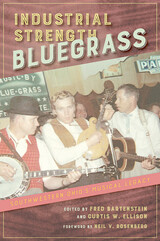
Revelatory and multifaceted, Industrial Strength Bluegrass shares the inspiring story of a bluegrass hotbed and the people who created it.
Contributors: Fred Bartenstein, Curtis W. Ellison, Jon Hartley Fox, Rick Good, Lily Isaacs, Ben Krakauer, Mac McDivitt, Nathan McGee, Daniel Mullins, Joe Mullins, Larry Nager, Phillip J. Obermiller, Bobby Osborne, and Neil V. Rosenberg.

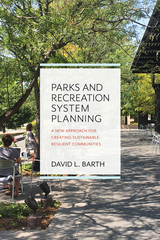
Barth first advocates that parks and recreation systems should no longer be regarded as isolated facilities, but as elements of an integrated public realm. Each space should be designed to generate multiple community benefits. Next, he presents a new approach for parks and recreation planning that is integrated into community-wide issues. Chapters outline each step—evaluating existing systems, implementing a carefully crafted plan, and more—necessary for creating a successful, adaptable system. Throughout the book, he describes initiatives that are creating more resilient, sustainable, and engaging parks and recreation facilities, drawing from his experience consulting in more than 100 communities across the U.S.
Parks and Recreation System Planning meets the critical need to provide an up-to-date, comprehensive approach for planning parks and recreation systems across the country. This is essential reading for every parks and recreation professional, design professional, and public official who wants their community to thrive.
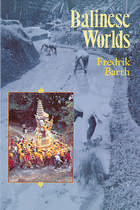
In this detailed ethnography of the Northern district of Buleleng, Barth rejects mainstream anthropological generalizations of Bali as a cultural system of carefully articulated parts. Instead—drawing on many sources, including the sociology of knowledge, interactional analysis, postmodern thought, and his own exceptionally varied field experience—Barth presents a new model that actually generates variation. Barth's innovative analysis of Balinese life highlights both the constructive and the disorganizing effects of individual action, the constant flux of interpretation, and the powerful interaction of memory and social relationships, and knowledge as a cultural resource.
Balinese Worlds is a unique contribution not only to Balinese studies but also to the theory and methods of the anthropology of complex societies.
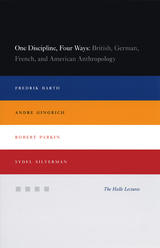
Moving from E. B. Taylor all the way through the development of modern fieldwork, Barth reveals the repressive tendencies that prevented Britain from developing a variety of anthropological practices until the late 1960s. Gingrich, meanwhile, articulates the development of German anthropology, paying particular attention to the Nazi period, of which surprisingly little analysis has been offered until now. Parkin then assesses the French tradition and, in particular, its separation of theory and ethnographic practice. Finally, Silverman traces the formative influence of Franz Boas, the expansion of the discipline after World War II, and the "fault lines" and promises of contemporary anthropology in the United States.
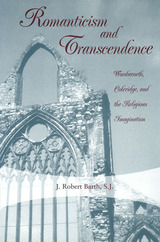
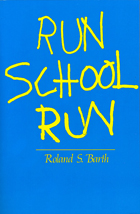
Roland Barth believes that there is a way to create a school which, instead of insisting upon uniformity, builds upon diversity among students, teachers, and teaching styles. Unlike many educational theorists, Barth has had ample opportunity to test his beliefs during his many years as an elementary school principal. Run School Run is the chronicle of his theory in action, a nuts-and-bolts study of one school’s rocky but ultimately quite successful transition toward pluralist education.
For Barth, the case against an elementary education that is uniform in content and method is clear-cut: teacher abilities differ radically, and so do student needs. In the pluralist school, the problem is to find ways to put this variety to good use. Barth shows that the solution is essentially a matter of organization; he sets up a principal’s blueprint that offers teachers more control over curriculum content, teaching materials and methods, and composition of classes, in a way that ensures an educational coherence for each student.
Run School Run is a rich, readable account, a how-to book as well as a personal reminiscence on the initiation and administration of an environment in which teaching and learning are allowed to take on shapes of their own design.
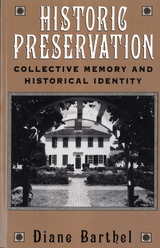
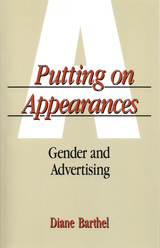
In this lively critical analysis, Diane Barthel reveals the previously overlooked and underestimated depth of cultural meaning behind contemporary American advertising. Focusing mainly on ads for beauty products directed at women, she demonstrates how stereotypical gender identities are emphasized and how advertising itself creates a gendered relationship with the consumer. She explores psychological, sociological, and cultural messages in advertising to show how Putting on Appearances is anything but a purely personal matter, and how the social realities in which we are forced to live are conditioned by the personal appearances we choose to create.
Most advertisements are not sexually obvious, but rely instead on sexual story-telling in which seduction, deception, and passion are portrayed as acceptable means for achieving selfhood. Advertisements that proclaim, "Now is the time to paint your knees" speak with one form of authority: those that present the voice of the all-knowing scientist or the nurturing mother rely on others. Celebrities figure as professional beauties and wise older sisters, sharing their secrets with the consumer. "The Gentle Treatment Great Model Search Made Me a Star. Now it’s your turn."
Inseparable from the clothes we wear and the products we use are our ideas and fantasies about our bodies. Beauty products present beauty rituals as transcendent occasions, and diet products call up religious imagery of guilt and salvation. The body itself is to be anxiously manipulated and systematically worked over until the consumer "turns her body into...an advertisement for herself, a complicated sign to be read and admired."
In the series Women in the Political Economy, edited by Ronnie J. Steinberg.
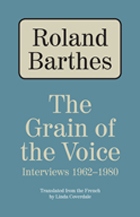
This book brings together the great majority of Barthes’s interviews that originally appeared in French in Le Figaro Littéraire, Cahiers du Cinéma, France-Observateur, L'Express, and elsewhere. Barthes replied to questions—on the cinema, on his own works, on fashion, writing, and criticism—in his unique voice; here we have Barthes in conversation, speaking directly, with all his individuality. These interviews provide an insight into the rich, probing intelligence of one of the great and influential minds of our time.
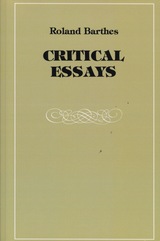
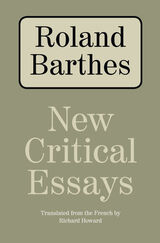
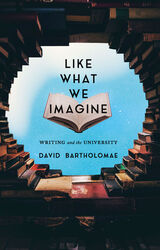
David Bartholomae has been a prominent figure in the field of composition and rhetoric for almost five decades. This is an end-of-career book, a collection of late essays that reflect on the teaching of reading and writing, on the challenges and value of students’ work, and on the place of English in the university curriculum. The chapters are unified by a thread that connects some of the books and ideas, people and places, students and courses that shaped and sustained his work as a scholar and teacher over time. Several chapters present and discuss extended examples of student writing. The essays trace his formation from the early days of “Basic Writing” to his final engagements with study abroad and travel writing, where he had the chance to think again, and in radically different settings, about the fundamental problems of communication across linguistic and cultural divides.

Jean L. Cohen Professor of Political Science, Columbia University
"This remarkable collection of essays illuminates -- more fully than any other volume -- the world order costs of the Iraq War, especially the radical denial of the relevance of international law in the US's pursuit of global empire. To understand this overarching geopolitical challenge of the early 21st century, citizens the world over should treat Empire's Law as required reading."
Richard A. Falk, Albert G. Milbank Professor of International Law and Practice Emeritus, Princeton University and currently Visiting Professor of Global and International Studies, University of California, Santa Barbara
"Right now there can't be enough discussion of America's role in world politics ... This is a much-needed collection from leading scholars."
Neil Stammers, Senior Lecturer in the Department of International Relations and Politics, University of Sussex
What is the legacy of the war in Iraq? Can democracy and human rights really be imposed "by fire and sword"? This book brings together some of the world's most outstanding theorists in the debate over empire and international law. They provide a uniquely lucid account of the relationship between American imperialism, the use and abuse of "humanitarian intervention", and its legal implications. Empire's Law is ideal for students who want a comprehensive critical introduction to the impact that the doctrine of pre-emptive war has had on our capacity to protect human rights and promote global justice.
Leading contributors including Leo Panitch, Sam Gindin, Jurgen Habermas, Ulrich Preuss, Andrew Arato, Samir Amin, Reg Whitaker, Denis Halliday and Hans von Sponeck tackle a broad range of issues. Covering everything from the role of Europe and the UN, to people's tribunals, to broader theoretical accounts of the contradictions of war and human rights, the contributors offer new and innovative ways of examining the problems that we face. It is essential reading for all students who want a systematic framework for understanding the long-term consequences of imperialism.
Amy Bartholomew is an Associate Professor in the Department of Law at Carleton University.
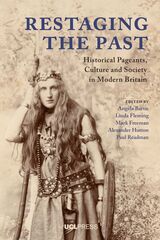
Pageants were community events, bringing people together in a shared celebration and performance of the past; they also involved many prominent novelists, professional historians, and other writers, and as a result were featured repeatedly in popular and highbrow literature. Although the pageant tradition has largely died out, the contributors argue that it deserves to be acknowledged as a key aspect of community history during a period of great social and political change—and, they show, because of its former prominence, some lingering signs of “pageant fever” can still be seen in Britain today.
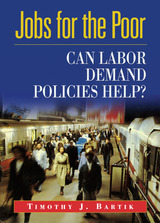

Travelers, Immigrants, Inmates was first published in 1995. Minnesota Archive Editions uses digital technology to make long-unavailable books once again accessible, and are published unaltered from the original University of Minnesota Press editions.
Identities are always mistaken; yet they are as necessary as air to sustain life in and among communities. Frances Bartkowski uses travel writings, U.S. immigrant autobiographies, and concentration camp memoirs to illustrate how tales of dislocation present readers with a picture of the complex issues surrounding mistaken identities. In turn, we learn much about the intimate relation between language and power.
Combining psychoanalytic and political modes of analysis, Bartkowski explores the intertwining of place and the construction of identities. The numerous writings she considers include André Gide's Voyage to the Congo, Eva Hoffman's Lost in Translation, Sandra Cisneros's House on Mango Street, Zora Neale Hurston's Dust Tracks on a Road and Tell My Horse, and Primo Levi's Survival in Auschwitz.
Elegantly written and incisive, Travelers, Immigrants, Inmates stands at the crossroads of contemporary discussions about ethnicity, race, gender, nationalism, and the politics and poetics of identity. It has much to offer readers interested in questions of identity and cultural differences.
Frances Bartkowski is associate professor of English and director of women's studies at Rutgers University in Newark. She is the author of Feminist Utopias (1989).
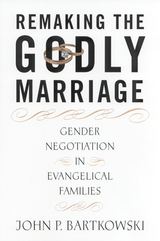
While religious leaders often have enormous influence over their members’ beliefs and how they translate their beliefs into action in everyday life, the individual family remains the place where religious values are practiced through and ultimately transferred to the next generation. As such, the family is an extremely important, though frequently overlooked, topic of study for sociologists of religion.
In Remaking the Godly Marriage, John Bartkowski studies evangelical Protestants and their views on marriage and gender relations and how they are lived within individual families. The author compares elite evangelical prescriptions for godly family living with the day-to-day practices in conservative Protestant households. He asks: How serious are the debates over gender and the family that are manifested within contemporary evangelicalism? What are the values that underlie this debate? Have these internecine disputes been altered by the emergence of new evangelical movements such as biblical feminism and the Promise Keepers? And given the fact that leading evangelicals advance competing visions of godly family life, how do conservative religious spouses make sense of their own family relationships and gender identities?
Through in-depth interviews with evangelical married couples and an exhaustive study of evangelical family advice manuals, Bartkowski explores the disputes and ambivalence concerning traditional gender roles and patriarchal models of family life, which derive from the tension between evangelical Protestantism as a religious subculture and the broader American secular culture in which it is embedded. Bartkowski reveals how evangelical men and women jointly negotiate gender roles within their families and selectively appropriate values of the larger culture even as they attempt to cope with the conflicting messages of their own faith.
READERS
Browse our collection.
PUBLISHERS
See BiblioVault's publisher services.
STUDENT SERVICES
Files for college accessibility offices.
UChicago Accessibility Resources
home | accessibility | search | about | contact us
BiblioVault ® 2001 - 2024
The University of Chicago Press



